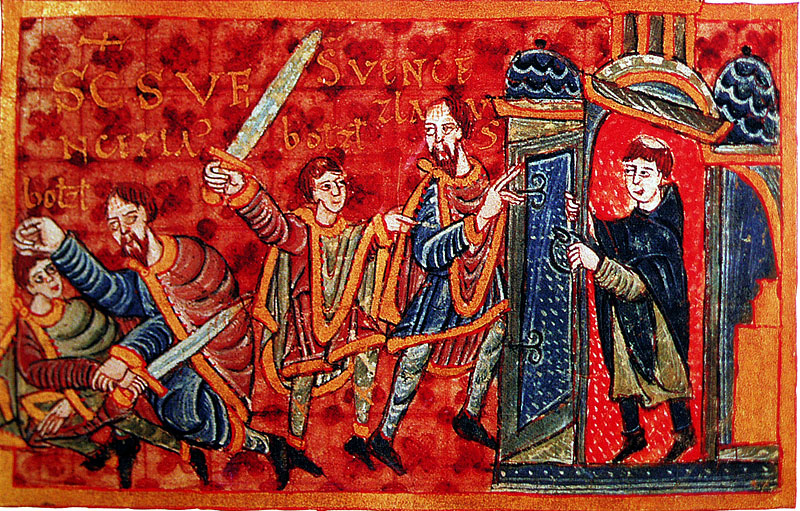935 The murder of “Good King Wenceslas”
The Czechs know him as Vaclav, their patron saint, and process with his skull on this day; English-speakers believe he was a king and sing about him on the day after Christmas. Wenceslas (908-935) was Duke of Bohemia at a time when his nation was pressured by pagan Magyar invaders from the east and expanding German rulers in the west who often levied tribute from the Czechs. Bohemia had been evangelized and partially converted to Christianity but powerful pagan factions held out. Court politics were particularly brutal. Wenceslas’s mother had ordered his grandmother, St Ludmilla, strangled and when he reached the age of majority Wenceslas exiled his mother.
On this date in 935 followers of his brother Boleslav stabbed Wenceslas on his way to church. It was once thought that Wenceslas, a pious Christian, was killed by Boleslav (nicknamed the Cruel) over religion but now his death is attributed to factional politics. Almost immediately after his murder a saintly cult grew up around the dead man, one which grew throughout the Middle Ages. Like Charlemagne to the French; Frederick Barbarossa to the Germans; Arthur to the English, and Sebastian to the Portuguese, Wenceslas is a Sleeping King — one who is not truly dead but only slumbers until his nation needs him.

“Good King Wenceslas looked out on the Feast of Stephen” …. Though music critics have complained for over a century about the awkward combination of words and music, the St. Stephen’s Day carol by J.M. Neale has proven to be an enduring favourite. Neale’s words, written in 1853, about the tenth-century Bohemian duke were matched to a spring carol from the sixteenth-century collection Piae Cantiones with an 1871 arrangement by John Stainer. Why Neale should have chosen Wenceslas to embody the call to Christmas charity remains a mystery. Some claim that there was a long-standing legend about his generosity which English soldiers who fought during the Thirty Years War in Bohemia brought home, but, if there was, no trace of it remains. Neale would most likely have used “the feast of Stephen” because December 26 (St Stephen’s Day) was Boxing Day in England, a customary time for seasonal charity.